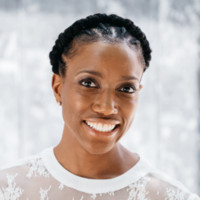It’s interesting to me that in 2021 people are still using proximity as a proxy for evidence of inclusion or inclusive behavior. In sessions with clients I remind them that “to include” is a verb. It’s an action word, as my second grader will tell you, which means inclusion equals things that you do. Inclusion is only present when action is present. Inaction is not inclusive. Inaction has no power to liberate.
Now, I know many who enter in conversations about diversity in our present day and time are often focused on racial diversity and inclusion, and specifically on representation for Black people, and specifically the lack of Black talent representation in organizations, industries, and especially in positions of leadership and authority. Please understand that when we’re talking about diversity and inclusion we always have an opportunity to broaden the conversation. Humans – individuals – are infinitely different and we are all more than the sum of our race, gender, sexual orientation, abilities, age etc. This is important because too often folks are using tokenism as their gateway to inclusive workplace status.
Representation Doesn’t Solve The Problem

How often have you heard the phrase “if only there was a _______ in the room this decision would not have been made, this announcement would not have been released?” And how often are we leveraging tokenism in the workplace as a way to excuse accountability from all others who are present there? Are you telling me that because there was a woman, a black person, a differently-abled person, a member of the LGBTQ community, an Asian American, present, a Gen Xer in the room, that the rest of us are absolved from speaking up and taking action? What problem does representation solve if the same people who have been speaking up and taking action are the only ones reliable to continue doing so?
Some Of My Definitions
Before I go any further in this discussion I want to get a few things clear by way of definition.
To help means to make it easier for someone to do something, to offer services or resources.
Advocate is described as the action of publicly supporting or recommending a cause or a policy.
An ally is a person or state formally cooperating with another towards a desired purpose
When we talk about Allyship as an action we’re talking about combining or uniting with others to illicit a resource for mutual benefit.
With my background in communications coaching, words are important. I love words and picking them apart and uncovering their meanings and their nuances and their connotations is def my bag. The terms that we use help us understand the ideas that we hold in our heads and the feelings that we hope others will share with us. Words hint at these deeper concepts, ideations, almost always imperfectly. Notice that to Help and to Advocate are not the same thing. You can help someone privately, but advocacy happens in a public arena. When you advocate for other people, others know who you support and what you value as evidenced by your actions, words and deeds. Advocacy by its nature is inclusive. This is significant when we talk about this idea of proximity as proxy for advocacy.
Proximity Doesn’t Equal Advocacy
In the summer of 2020 Ted Yoho, a conservative representative, called Alexandria Ocasio-Cortez of New York, “a fucking bitch”. In his apology (if one can call it that) Yoho cited his proximity to women as his defense. “Having been married for 45 years with two daughters, I’m very cognizant of my language.” AOC was quick to acknowledge that one can be married to a woman, be a father to a woman, and still accost women and oppress women in one’s actions and deeds. Proximity does not equal advocacy.
Now, this example in the United States Congress is very clear on the lines of gender and the lack of advocacy for women. But how often have we seen this offense when it pertains to race? How often have we heard the “I have friends of all races,” or “one of my best friends is Black/Asian/Latinx” or “I’ve dated women of all colors in the rainbow”? Again, it’s important to get clear around the significance of these words for those who speak them. Our definitions of oppression have evolved over time. The nineteen-sixties understanding of racism as overt acts of violence against people of a different racial group does not fully encapsulate the breadth of oppression we deal with in the current day.

Today we understand racism to be about supporting systemic policies and practices that keep members of other groups oppressed or unable to progress at a rate or pace equitable to others. This means you could have a Black, Asian, Native American, Latinx, Chicano friend and still support policies that oppress their lives. You’re not helping advocating for anyone by living next to them. Or by marrying them. By raising their children even. (Don’t get me started on the Superman complex in adoptions).
To be A True Ally is to be An Advocate
If you are a true Ally you must be an active Advocate – you are publicly denouncing policies that oppress those who are different from you and you are publicly engaged in actions and deeds that lead to the liberation of others. This goes beyond simply existing in proximity to others. No one ever became free through osmosis. Even as I write these words I’m considering leveraging that in my next workshop.
What is it that we are assuming when making such statements about proximity? Are we assuming that just because we’ve let a Black person in the room that others will also be liberated? Or are we assuming that our proximity to that person somehow makes us an Ally? Do we assume that the extent of advocacy is tokenism? Have we reduced people to be our designated representatives of inclusion without challenging ourselves to publicly and actively . . . act? Are we only interested in representation if is from one of the six classes protected under employment law?
Do better. We can all do better. Oppressed folks aren’t looking for friends. They’re looking for liberation. And that comes from public actions, outspoken words, and policy changing deeds. Don’t be a friend. Be an advocate. And maybe one day all of us can play on the same team as true allies.


